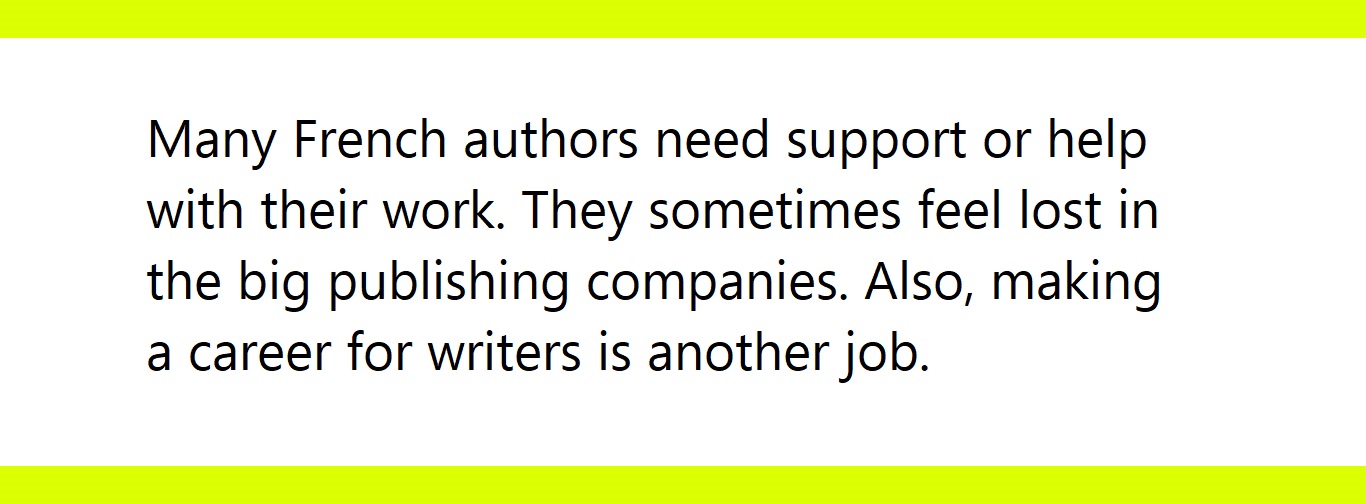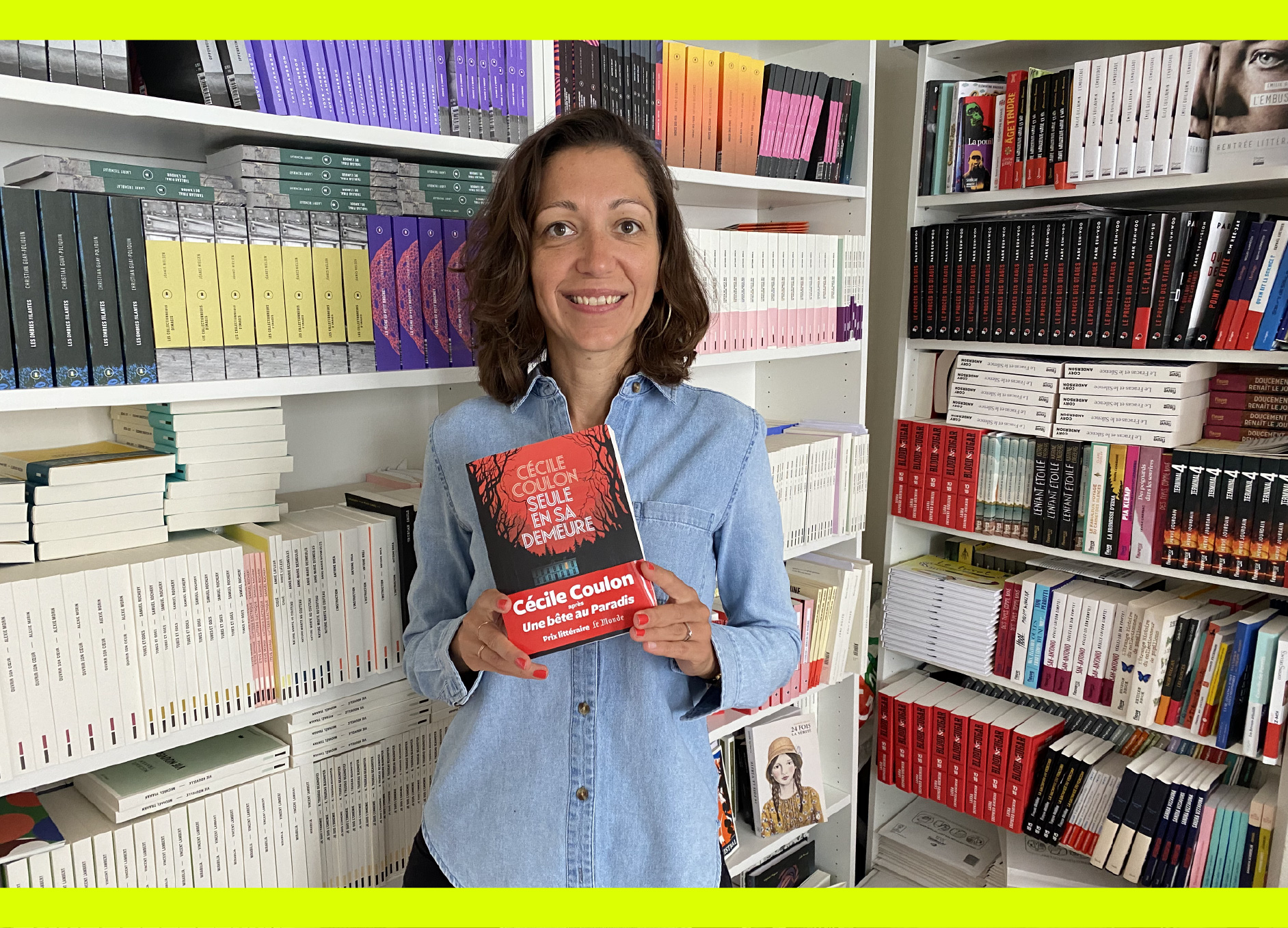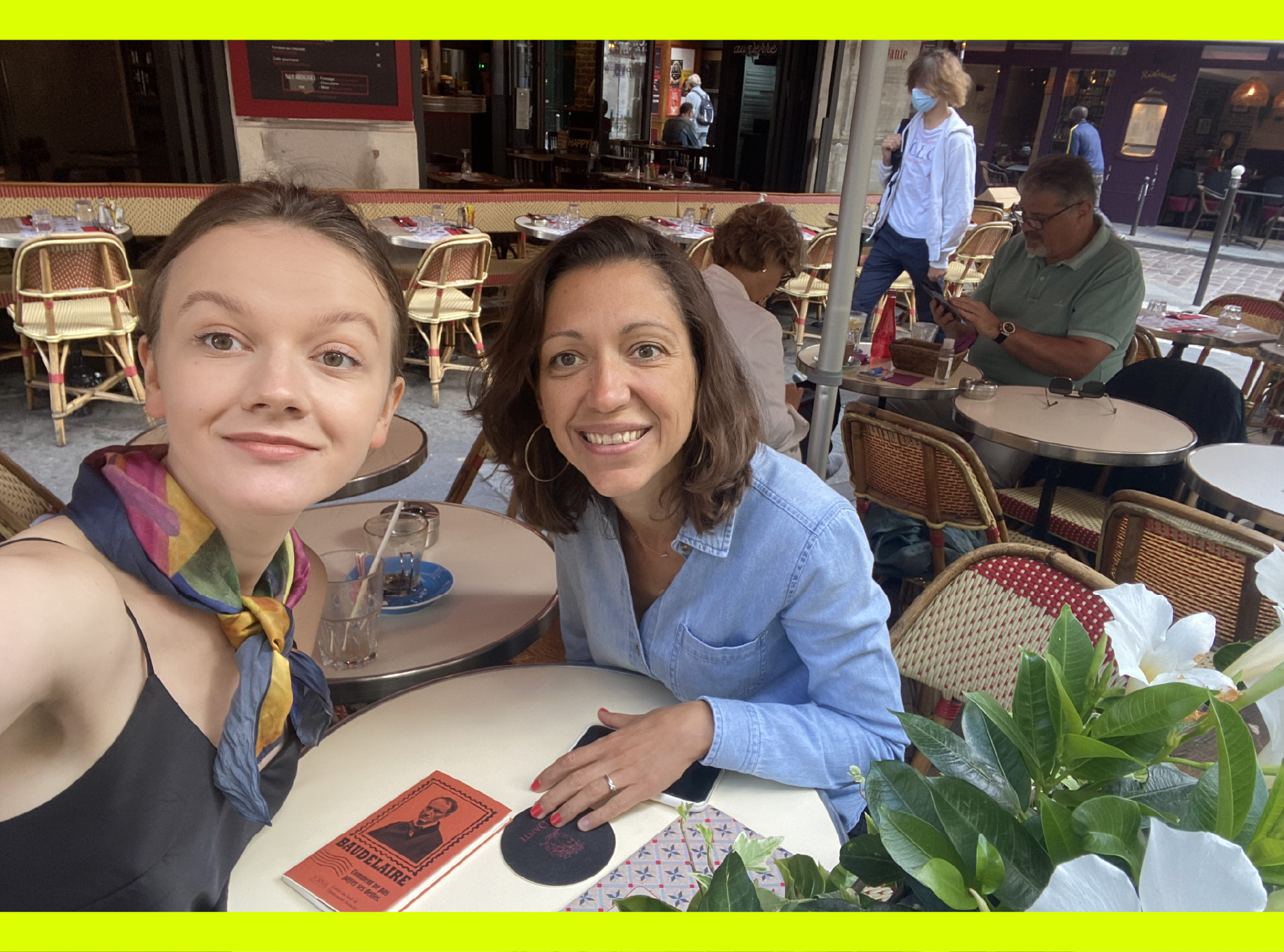Violaine Faucon, Trames: Part of an agent’s job is to know the right place and time

Violaine Faucon had been working for the publishing house for 12 years before founding the literary agency Trames with three colleagues. Faucon was an editor, then continued to work with rights at Editions de l’Olivier, and in 2018 she co-founded Trames agency. It is not just a young company looking for open niches in the French book publishing market, but also a modern agency providing personalized services according to the context and customer request. How Violaine and her colleagues managed to create a company in a market in which literary agents are little involved – read in our conversation.
– How did you become a literary agent?
– I studied literature and then enrolled in a master’s programmed, which included courses on book publishing, at the Sorbonne. I went through training and internships in publishing houses and that’s how I got to Edition l’Olivie, an imprint publishing house within a large group of publishing companies. At first, I was an assistant to Olivier Cohen, the company’s CEO, but over the years, my position changed completely: I started working on translation rights.
The company decided that the team should include a person who will perform agency work, and deal with rights and contracts. Afterwards, I had a conversation with a few friends: we all turned 40 recently, and we wondered if we should come up with something of our own. There were four of us, and we understood that we had different backgrounds and competencies. That’s how Trames appeared in 2018. In French, it is called à la carte – customers can order either all the services from our portfolio or just a part of them. These are very selective services, taking into account the request.
– What interested you the most when you came up with the Trames agency
– Our biggest goal and interest is primary agenting.

– Where does this feeling of loss come from? Is the market too big?
– Now in France there are huge changes in publishing groups, which means that the editors are also changing. If the editor moves to another publishing group, the author’s question is “What to do?”, do they have to follow their editors or stay with the publishers?

– Do you mean the issue of money or influence in general?
– Money matters, but we also speak that agents can interfere in the relationship between the editor and the author and destroy it. And this relationship is extremely important for French publishers. The Trames team came from publishers, so we were well aware of these stereotypes and fears. That’s why the publishers and editors we worked with understood that we weren’t people who came out of nowhere, and together we could work better for authors. We speak one language.
– I was impressed when I read on your website that you are an agency that supports publishing houses. Richard Charkin told us about some tension between agents and publishers, so, taking into account your history, do you manage to cooperate?
– Sure! That’s why we are a bit of an atypical agency because we represent both publishers and authors. In the future we would like to work more and more with the authors, it is very interesting. Currently, 25 writers are working with our agency. The author must find his own editor and his own publisher.
Sometimes there are auctions for the texts of our authors, which is also important because the writer meets with the editors and checks – will he be comfortable? After all, they must share certain common views on texts and literature. We are by no means building a wall between authors and editors.

– Tell us about your co-founders. You have all worked for a long time in French publishing houses – what prompted you to create an agency?
– We wanted to work together but we did not want to define too clear positions in the agency, because we wanted to discover unknown parts of the publishing world. The four of us work as agents, creating a small team of two for each author. I specialize in rights, but if I’m in town and I go to a bookstore, I’ll definitely say, “Hi, I’m from the Trames, here’s our catalogue,” although I’m not involved in distribution. The idea of synergy is close to me.
And when someone doubts, the other three say: “Don’t worry, we are quite successful, everything is fine.” You never feel lonely in this adventure. At the same time, when a client comes to the office, he can hear different opinions from each of us.
– What services do you provide?
– I have some clients regarding the rights who do not order communication services from us, and there are also opposite situations. For example, with some publishers we deal with the media – and that’s it. Different clients have different needs and, for this reason, there are different contracts. We work with Fleuve, for example, a large company that publishes popular books. And they turned to us because they couldn’t reach independent bookshops. We helped them to deal with it.
We call these bookshops “first row”. These are completely independent bookshops, private business, these bookshops do not have much contact with huge companies that are commercial and sell, say, in supermarkets. Our agency has a literary image, so working with us means that books from our catalogue can get to such prestigious bookshops. Our job is to go to these bookshops, which we know well, and draw their attention to the publications of a commercial publishing house, which we sincerely consider worthy of attention. This is a step-by-step job.
— – It is a very interesting remark about small bookshops because most books are still sold through supermarkets and large chains. That is, from the point of view of business it is unjustified. Why is this important for the customers you mention?
– The situation in France is really special. We have more than one and a half thousand independent bookshops and this is a really important part of the market. It is a network of people who constantly meet with authors and build relationships with readers. That’s why they sell books really well. If you publish books that you consider good literature, it is really important to get them on the shelves of these bookshops. This will not work in supermarkets.
Bookshops in France are governed by special legislation.

I think Amazon and online sales in general are bigger competitors today.
– Literary agents in the French-speaking market are not as common as in the English-speaking market. Why did you decide to do such a business?
– We know every editor in Paris. That’s why it’s easy for us to build professional relationships in new roles – we are former colleagues. We are well aware of the tastes of these editors and make very specific and selected proposals. We do not send the text we are working with to all publishers in a row. I think it’s part of an agent’s job to know the right place and the time.
We know the portfolios of publishing houses and how the press reacts to certain literature from a certain publishing house.
– Can you say that Trames is an agency that responds to changes in the French market?
– We received feedback from the authors that there was a great frustration. The authors of the new generation treat writing professionally and need to have really clear contracts and reports. To do this, they need agents, because at the same time they must maintain good relations with the editors, communicate with them about the texts and about life. And if you have a good relationship with the editor, then after such conversations it is difficult to talk about money. The agent will talk about money.
– What is the French publishing market like now?
– Publishing companies in France are merging into larger and larger groups. Everything is changing, so the current state of affairs in the French publishing market can be called a crisis. Not because of sales, but because we don’t know what will happen to big publishers. Booksellers and publishers need outside help.
– Do the most famous French authors work with literary agents?
– Usually, the authors worked very closely with the publisher and the editor. From the outside, it seemed that the agent appears only when the author succeeds. Nowadays, really famous authors work with agents, even if they work directly with editors. But this sometimes means that the agent has nothing to do with the text and is only concerned with rights. Michelle Welbeck, Fred Vargas… I go over the names in my head and realize that most authors do have agents. And those who don’t have one have had a relationship with their publishers for about 20 years.
– What else makes a profession of a modern literary agent? We talked about professional networking and personal approach.
– The agent must be able to adapt to the people he works with. For example, we have completely independent authors. They know what they want to write and what should happen to the manuscript, they have experience. But there are also completely lost authors who need support even in the writing process. The idea is not to be the same with each author, but to be as close as possible to the specific needs of a particular author. When we work with newcomers, we feel almost light in the dark for them. With well-known authors, these are more likely to be career choices that can potentially affect your career. I like that our work is so diverse.

– Do you have more clients among authors or publishers?
– The number is almost the same. When we first started the company, it was difficult to make money just by working with writers. That’s why we started working with publishers on a fixed fee basis.
– Tell us about the fixed fee – how is it formed?
– For example, we work with a certain name from the publisher’s portfolio – we receive a fixed monthly fee for mentions in the press, communication activities.
– Which authors do you work with as primary agents?
– Only with the French. We must be fully involved in the text – and this is possible only with French. We sometimes get suggestions from foreign authors, but honestly, we can’t appreciate the text, just as we do with French ones. For us, being an agent is also working with the text.
– What do you like in literature? And what is a good text for you as an agent?
– When I read any text, I immediately think about which publishing house it could work with. I love good style and good language, say, Marguerite Duras. But it is the work of an agent that opens me to a very different letter.
We get an incredible number of manuscripts now… History may not be ingenious, but if it has potential, it can be improved! This is often the case with debuts. The manuscript is always read by one of us if there appears any doubt about whether to take it or not. The text is read by another of us, and then we make a decision. We work with a wide variety of literature, from popular fiction to real high-shelf texts. People should read what they like, but when I talk about popular fiction, it should be well written
– How do you work with debutants?
– Sometimes we get a manuscript and see the potential, but also the fact that a lot needs to change. We call the author and say, “We’ve read your text, it’s interesting, but it has some problems – are you ready to work on it yet?” The author is sending a new version, and so we understand his openness to change. Sometimes it all comes together and we can pass the text to the editor, and sometimes it’s a story of secrecy. Then we refuse.
– Do you want to see the author’s openness to editing?
– Yes, and the way he works with the text. Editing is always about professional communication. It is not easy to refuse talented authors, but it is very important for cooperation. Also, debutants are often not ready to wait, because a year or two passes before publication from the moment of acceptance of the manuscript.
– What else do you reveal to the authors?
– Well, let’s say a beneficial time to publish a book. It is better to publish different genres at different times, it depends on professional events, the market, and holidays. It is good to publish popular books before summer because it is the holiday season
– What are success and an indicator of effective work for you?
– Our goals differ depending on whether we are working with a debut or a well-known author.

But do not feel lonely. This is very important for us.


